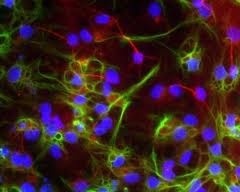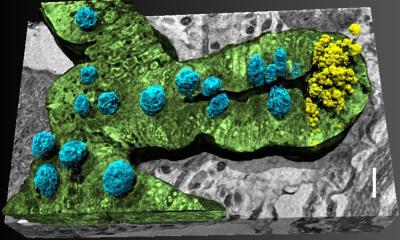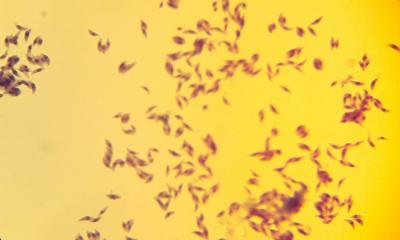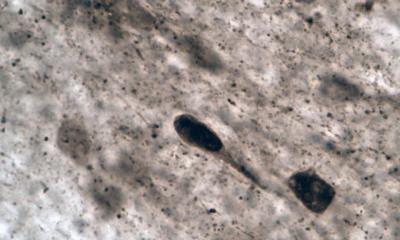A link between adult neurogenesis and memory recovery
The brain of mammals produces new neurons for the whole of their lives. This process, called neurogenesis, enables cognitive functions such as memory or learning, and its decrease is linked to some neuro-psychiatric pathologies and intellectual disabilities.

Researchers from the Istituto Italiano di Tecnologia (IIT) have demonstrated that the stimulation of adult neurogenesis can resolve certain cognitive disabilities peculiar to Down syndrome. This result has been obtained by studying animal and cellular models and through the administration of lithium, a drug already used in the therapy of some mood disorders.
The research has been coordinated by Dr. Laura Gasparini and Dr. Andrea Contestabile, respectively team leader and researcher in the Department of Neuroscience and Brain Technologies of the IIT, and has been published online (Contestabile et al.) by the important international scientific journal – the Journal of Clinical Investigation.
Neurogenesis is a complex process that occurs during both development and adulthood in specific areas of the brain, where the appearance of new neuronal cells ensures the perfect functioning of learning and memory, and thus enables abilities such as space orientation or the discrimination of different elements in similar contexts. In particular, adult neurogenesis occurs in the hippocampus, where “progenitor cells” proliferate and give origin to new neurons which, following their functional differentiation, are integrated into the pre-existing circuits. In Down syndrome the reduced capacity of the hippocampus to generate new neurons is probably the cause of specific cognitive disabilities.
“In our work we have studied animal models presenting a genetic condition analogous to that of Down syndrome”, Gasparini stated, “with the scope of understanding if a pharmacological stimulation of hippocampal adult neurogenesis could rescue specific cognitive functions altered by the pathology. Our team has applied accurate methodologies to perform this important research, which in future could benefit those who are affected by the syndrome. The results are very interesting and open therapeutic prospects that warrant further investigation.”
Down syndrome has complex genetic causes, due to genetic abnormalities arising from the presence of a third copy of chromosome 21. For this reason the syndrome is also called trisomy 21. This chromosome imbalance has negative consequences on the cerebral function, determines neuronal networks with reduced number of connections and defective communication at the level of synapses, the specialised structures where information is transmitted from one neuron to another. This leads to intellectual disabilities, affecting abilities such as language, memory and spatial learning.
The IIT researchers have demonstrated that the administration of lithium acts positively on the neuronal circuits of the hippocampus, stimulates neurogenesis and rescues specific cognitive functions of trisomic animals. “Our study has shown that re-establishing a correct adult neurogenesis through medication brings powerful benefits at the level of synaptic communication. This in turn causes an improvement in the cognitive abilities of our models” says Andrea Contestabile, the first author of the article. “We have carried out some memory tests, like for example the recognition of an adverse environment and the ability to distinguish between objects on the basis of their shape or placement in space, before and after treatment with lithium. We demonstrated that untreated trisomic animals perform poorly in these tasks, but fully recover their cognitive abilities after the treatment.”
The results are very promising but must be taken with caution. “Now we know that stimulation of adult neurogenesis can be a therapeutic strategy to improve some cognitive disabilities typical of Down syndrome. However, it will be necessary to carry out further studies to verify the efficacy of this approach in man and exclude undesirable adverse events.” Gasparini concludes
Neuroscience and Brain Technologies (NBT):
The Department of Neuroscience and Brain Technologies (NBT) of the Italian Institute of Technology deals with study of basic and applied neurosciences, including the understanding of the cerebral mechanisms of plasticity and codification and understanding of the fundamental basis of the psychiatric and neurological pathologies. In line with the objectives of the 2012-2014 Strategic Plan, the NBT scientists are developing strong inter-disciplinary cooperation with the other Departments and Centres of the IIT, to encourage innovation in neuroscience at many levels. The research activity of the NBT Department is directed by Prof. John Assad and by Prof. Fabio Benfenati.
ISTITUTO ITALIANO DI TECNOLOGIA (IIT)
The Istituto Italiano di Tecnologia (IIT) is a private law foundation jointly established by the Ministry of Education, Universities and Research and the Ministry of Economy and Finance with the objective of promoting excellence in both basic and applied research and to encourage the development of the national economic system. The overall staffing of the IIT amounts to 1087 persons. The scientific area is represented by 86% of the staff. 41% of researchers come from abroad: 24% foreigners from 38 countries and 17% returning Italians.
The IIT has produced more than 2000 publications and 91 inventions which have given rise to 145 patents, of which 71 Italian and 74 international. In the Genoa campus there are departments of Robotics (“Robotics, Brain and Cognitive Sciences” and “Advanced Robotics”), departments dealing with the life sciences (“Neuroscience and Brain Technologies”, and “Discovery and development of drugs”) and the facilities of “Nanochemistry”, “Nanophysics”, “Nanostructures”, “Pattern Analysis & Computer Vision” and the “iCub Facility”. Since 2009 scientific activity has been further supported by 10 research centres located throughout Italy (Turin, Milan, Trento, Parma, Rome, Pisa, Naples and Lecce) that are developing new platforms for the 2012-2014 scientific plan, together with the Central Laboratory of Genoa.
20.12.2012





